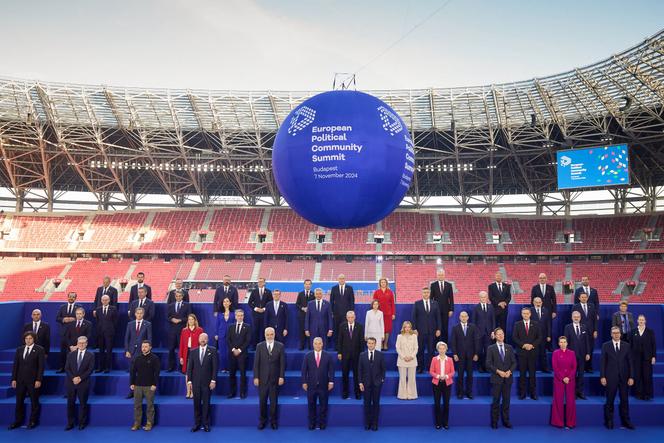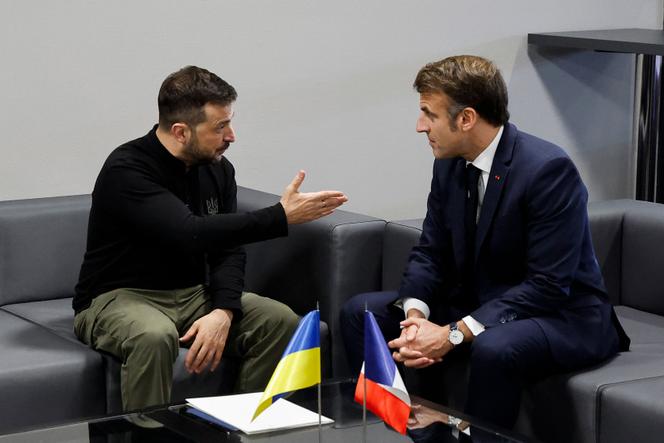


European leaders gathered in Budapest, on Thursday, November 7, in search of a joint response to the threats raised by a new Donald Trump presidency – though the seat occupied by Germany, a European powerhouse, was left empty by a deepening political crisis.
The leaders of the European Union were joined by others from the United Kingdom to Turkey, as well as NATO chief Mark Rutte and Ukrainian leader Volodymyr Zelensky, for the meeting of the European Political Community – to be followed by a summit of the 27-nation bloc.
"The future of Europe is in our hands," European Commission chief Ursula von der Leyen said as she headed into the talks, dominated by Trump's return to the White House. "We've shown that Europe can take responsibility by standing together," she added.
On the agenda: Europe's security challenges, chief among them Russia's invasion of Ukraine, as well as conflict in the Middle East, migration, global trade and economic security – issues all thrown into sharp relief by the prospect of a disruptive second Trump presidency.
"This is a decisive moment in history for us Europeans," Macron told the gathering in opening remarks. "Do we want to read the history written by others – the wars launched by Vladimir Putin, the US election, China's technological or trade choices," Macron asked. "Or do we want to write our own history? I think we have the strength to write it."
While Macron's tone was combative, he has been weakened by political troubles at home, as has the leader of the bloc's other heavyweight – Germany's Olaf Scholz – whose ruling coalition finally collapsed overnight, spelling uncertainty at a critical time for Europe.
In a stark illustration of the leadership void, Macron made his appeal in the absence of the German chancellor – who missed the day's talks due to the unfolding crisis, and was due to catch up with leaders over dinner.
Most urgent among the challenges posed by Trump's return is the fear that he could upend European security and pull the plug on support for Ukraine, while simultaneously unleashing a trade war with steep tariffs on European goods.
Macron urged the continent to assert its strategic independence from the United States – and defend its interests over those of geopolitical rivals. "We must not delegate forever our security to America," he said.

However, Ukraine's Zelensky, in addressing the gathering, made it clear that Kyiv was still counting on US engagement, as well as a strong Europe, to repel Russia's invasion. "We do hope that America will become stronger. This is the kind of America that Europe needs. And a strong Europe is what America needs. This is the connection between allies that must be valued and cannot be lost," Zelensky said.
That message was reinforced by NATO's Rutte, who made a pitch to convince Trump to keep backing Kyiv, arguing that North Korea's involvement in the conflict – and the transfer of Russian weapons technology to Pyongyang – directly threatened the US. "I look forward to sit down with Donald Trump to discuss how we can face these threats collectively," said the alliance's new leader.
The Budapest meetings are being hosted by Hungary's Viktor Orban – one of Trump's rare close allies in the EU – who adopted a noticeably restrained tone as he joined calls for European unity.
Thursday's leaders' dinner is supposed to be devoted to the issue of transatlantic relations.
Friday's EU summit will focus on addressing the risk of Europe's economy falling dangerously behind major rivals the United States and China. Trump's return will only intensify calls – highlighted in a key report by former Italian leader Mario Draghi – for vitally needed new EU funding tools for defense and economic innovation, seen as critical to ensuring its sovereignty.
